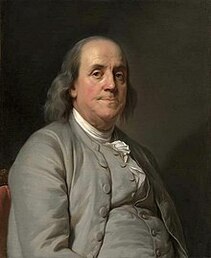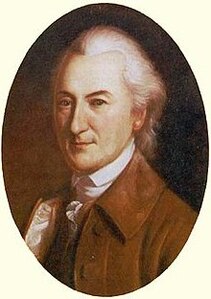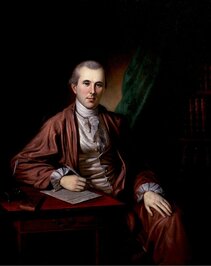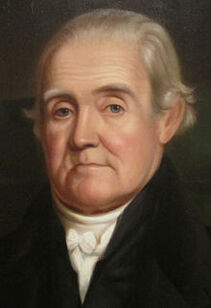 BENJAMIN FRANKLIN owned slaves, but he became an abolitionist later in life and liberated his slaves. He was the president of the Society for Promoting the Abolition of Slavery and the Relief of Negroes Unlawfully Held in Bondage. He promoted the idea of educating former slaves and helping them find employment so they could fend for themselves.  JOHN DICKINSON was a member of the First and Second Continental Congress and worked with Thomas Jefferson in writing the Declaration of Independence. He was an officer during the War of Independence. He was a delegate to the Constitutional Convention of 1787 and was elected President of Delaware and President of Pennsylvania. Dickinson is the author of “The Liberty Song” (1768). The original chorus said, “Then join hand in hand, brave Americans all, By uniting we stand, by dividing we fall; In so righteous a cause let us hope to succeed, For heaven approves of each generous deed.” Dickinson became an abolitionist and freed his slaves in 1776. He devoted his final years to the cause of abolition and donated a considerable amount of his wealth “to the relief of the unhappy.”  BENJAMIN RUSH, signer of the Declaration of Independence, denounced slavery in his tract On Slave Keeping (1773). He called it a “vice which degrades human nature.” He called on Americans to oppose it. “Remember the eyes of all Europe are fixed upon you, to preserve an asylum for freedom in this country after the last pillars of it are fallen in every other quarter of the globe.” John Jay, first Chief Justice of the United States Supreme Court (1789-95), author of five of the Federalist Papers, and Governor of New York, was a leading opponent of slavery. “His first two attempts to end slavery in New York in 1777 and 1785 failed, but a third in 1799 succeeded.” All slaves in New York were emancipated before his death in 1829.  NOAH WEBSTER, who had a major influence on the U.S. Constitution through his 1787 essay An Examination into the Leading Principles of the Federal Constitution, called for slavery to be abolished in the United States. He founded an antislavery group called the Connecticut Society for the Promotion of Freedom. His influential Blue-Back Speller included an essay by Thomas Day calling for the abolition of slavery. Day argued that this was in accordance with the nation’s Declaration of Independence. He warned Americans that consistency required that they either acknowledge the rights of the Negroes or surrender their own rights. (Friday Church News Notes, July 12, 2019, www.wayoflife.org, [email protected], 866-295-4143) Comments are closed.
|
Archives
February 2020
|
Ads do not imply endorsement | Policy/Terms of Service | About Us | Contact Us | © Life Work Academy, Inc.
 RSS Feed
RSS Feed

